For 1990-2009 cars only
Exhaust Gas Recirculation (EGR) Valve Inspection
Caution: If the EGR valve is hot, wear gloves in order to prevent personal injury.
Tools Required
J 23738-A Hand Vacuum Pump
- Start the engine.
- Run the engine to normal operating temperature.
- Connect the hand vacuum pump to the vacuum port of the Exhaust Gas Recirculation (EGR) valve.
- Using the hand vacuum pump, apply 34 kPa (10 in. Hg) of vacuum to the EGR valve. The EGR valve diaphragm should move and the engine should run rough or the engine may stall.
- If the EGR valve diaphragm does not move, replace the EGR valve. Refer to Exhaust Gas Recirculation Valve Replacement .
- If the EGR valve diaphragm appeared to move, but the engine speed did not change, inspect for carbon deposits causing a restriction in the exhaust gas or intake manifold passages. Repair as necessary.
- If there was no restriction found in the exhaust or intake passages, replace the EGR valve. Refer to Exhaust Gas Recirculation Valve Replacement .
Exhaust Gas Recirculation (EGR) Back Pressure Sensor Inspection
Tools Required
J 23738-A Hand Vacuum Pump
- Remove the exhaust gas recirculation (EGR) back pressure sensor , or transducer, from the engine. Refer to Exhaust Gas Recirculation Back Pressure Sensor Replacement .
- Check the filter (1) for any contamination and damage. Clean the filter with compressed air if necessary.
- Place your fingers over the vacuum tubes marked P and R of the EGR back pressure transducer (1).
- Blow air (2) into the opposite tube marked Q. Air should pass through the filter part of the pressure transducer.
- Connect a hand vacuum pump to tube P (1) and plug tube Q (2) with your finger.
- Blow air (3) into tube A (4) while applying vacuum to tube P (1) at the same time. You should be able to obtain vacuum on the vacuum pump gauge.
- Stop blowing air into tube A (4). The vacuum pump gauge should read zero.
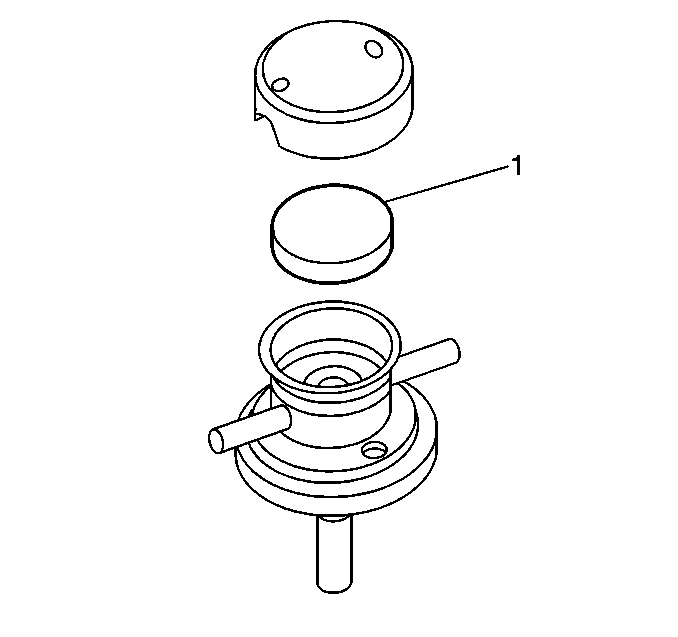
Important: Always install the coarse side of the filter facing outward.
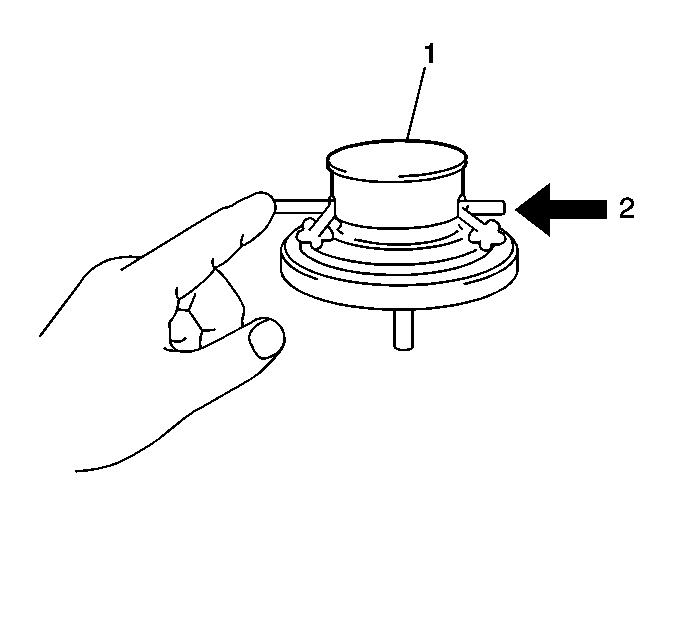
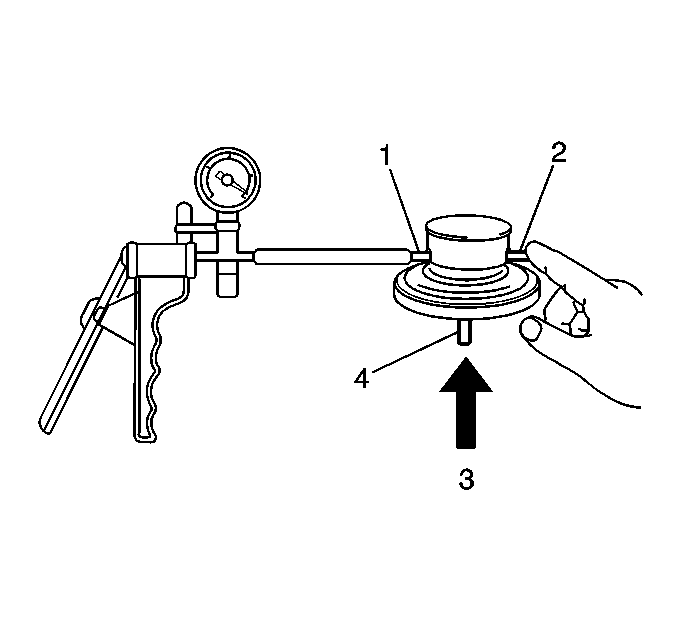
Replace the EGR back pressure transducer if the transducer fails either test. Refer to Exhaust Gas Recirculation Back Pressure Sensor Replacement .
Exhaust Gas Recirculation (EGR) Solenoid Vacuum Valve Inspection
Tools Required
J 39200 Digital Multimeter
- Remove the EGR solenoid vacuum valve from the engine.
- Check for continuity from each solenoid terminal to the solenoid body. Replace the solenoid if continuity exists, indicating the solenoid is shorted internally. Refer to Exhaust Gas Recirculation Solenoid Vacuum Valve Replacement .
- Blow air into the inboard port of the EGR solenoid vacuum valve. The air should exhaust from bottom vent.
- Connect battery voltage to the EGR solenoid vacuum valve.
- Blow air into the inboard port of the EGR solenoid. The air should exhaust from the outboard port and not the bottom vent.
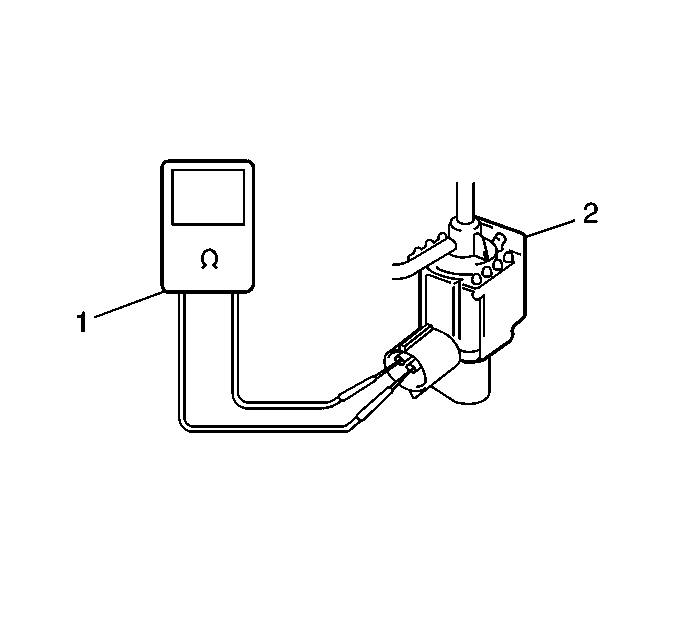
Measure
| • | Measure the resistance (2) of the EGR solenoid vacuum valve terminals (valve side). The resistance should be 37-44 ohms at 20°C (68°F). |
| • | Replace the EGR solenoid vacuum valve If the resistance is not within the specification. Refer to Exhaust Gas Recirculation Solenoid Vacuum Valve Replacement . |
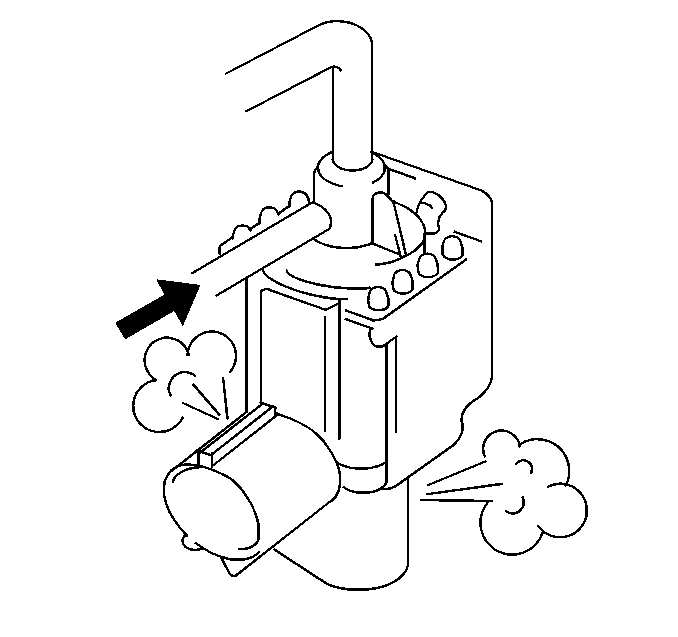
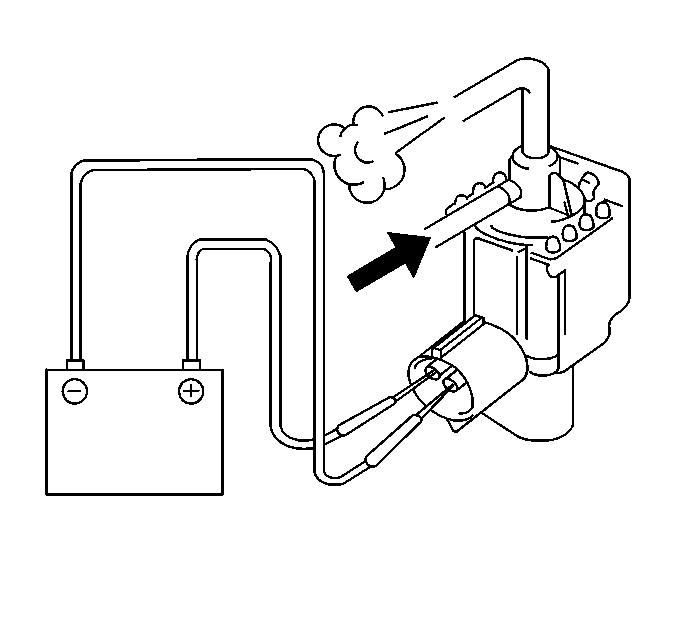
Replace the EGR solenoid vacuum valve if the valve does not pass both flow tests. Refer to Exhaust Gas Recirculation Solenoid Vacuum Valve Replacement .
